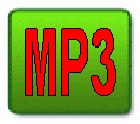 |
The Unilateral Covenant |
Dear Brethren,
The Night to be Much Observed has always been a favorite gathering of mine. I can remember in the 1970’s when we had the choice of going to a restaurant with a bunch of people, or having the ‘Night’ in the privacy of our home with a few people over. When there were 25 or more people at a restaurant, the most you could fellowship with was three or four brethren next to you and across the table. In a home setting you could easily interface with a lot more people. I liked that better. We always began the evening with a very gracious prayer setting the mood for the evening. The conversations began with how God in His mercy had begun to deliver His people way back with the Exodus. We compared those days with how we are being delivered and saved today. Since it was the beginning of a Holy Day we usually had a nice meal with the emphasis on the ‘Unleavened’ nature of the meal. When we came into God’s Church we were blessed with having a minister that allowed us the freedom to search out some of the deeper meanings of God’s Holy Convocations without feeling threatened himself. We wanted to know and understand the importance of the Night to be Much Observed.
There is a distinction that needs to be made if we are to have a clear understanding of God’s Holy Days. It has become commonplace to use the terms Feasts, festivals, Holy Days and Holy Convocations, almost interchangeably. For example, Passover is the first of God’s annual Feast days and a Holy Convocation, but it is not observed as a Holy Day. Work is permitted on Passover. Originally, Passover was a yearly memorial of Israel’s firstborn being spared from death, but is now observed as the memorial of the death of Jesus Christ.
John 6:53-54 Jesus said, Truly, truly, I say unto you, Unless you eat the flesh of the Son of man, and drink his blood, you have no life in you. Whosoever eats my flesh, and drinks my blood, hash eternal life; and I will raise him up at the last day.
On the other hand, God’s second annual festival, the Feast of Unleavened Bread is just that, a Feast – and yet it contains two Holy Days – the First Day and the Last Day of Unleavened Bread. The apostle John refers to the Holy Days as High Days:
John 19:31 The Jews therefore, because it was the preparation [for the First Day of Unleavened Bread], that the bodies should not remain upon the cross on the Sabbath day, (for that Sabbath day was an High Day,) besought Pilate that their legs might be broken, and that they might be taken away.
The High Holy Days are these: The First Day of Unleavened Bread, the Last Day of Unleavened Bread, Pentecost, Feast of Trumpets, Day of Atonement, Feast of Tabernacles, and the Last Great Day. There are seven annual Holy Days in all. In addition to the yearly High Days, the weekly Sabbath is both a Feast and a Holy Convocation.
Leviticus 23:2-3 …Concerning the Feasts of the Lord, which you shall proclaim to be Holy Convocations, even these are my Feasts. Six days shall work be done: but the seventh day is the Sabbath of rest, an Holy Convocation.
There are seven annual Feasts: Passover, Feast of Unleavened Bread, Pentecost, Feast of Trumpets, Day of Atonement, Feast of Tabernacles, and the Last Great Day.
The word ‘convocation’ means God’s appointed time. It comes from the Hebrew miqrâ' which can also be translated as ‘a rehearsal.’ That is interesting in that the Holy Days are a rehearsal of the seven steps in God’s Plan for our spiritual salvation and membership in His Family. And it is also interesting that the yearly Holy Days begin with the Night to Be Much Observed. What is so special about this particular night?
Exodus 12:40-42 Now the sojourning of the children of Israel, who dwelt in Egypt, was four hundred and thirty years. And it came to pass at the end of the four hundred and thirty years, even the selfsame day it came to pass, that all the hosts of the Lord went out from the land of Egypt. It is a Night to be Much Observed unto the Lord for bringing them out from the land of Egypt.
The question is, “The exact selfsame day as what?” What took place on that same exact evening four hundred and thirty years before? It is a most important night to observe as a Holy Convocation. A Holy Day is a day that is set apart to focus on the things of God. While Passover commemorates the sacrifice of the Lamb of God—the death of Jesus Christ, the Night to be Much Observed commemorates not only Israel’s exodus from Egypt, but much more. One thing the Church brethren have come to understand is the precise timing of Biblical events as they are performed by God. He is working His Plan in a meticulous way in order to show His people – who believe – what He is doing and what it means. We are given an incredible number of markers like – “when the hour was come,” “the setting of the sun,” when it “was dark,” the “third hour,” “the same day,” “on the morrow,” and “the selfsame day” – repeated over and over for emphasis, so that we are able to understand the timing of these important events and keep them in order. It is not only a night to be “observed,” or “remembered,” as much as it is a night in which we find a “replication” of God’s intervention time and again. A better translation would be “The Night Much Replicated,” because so many pivotal events took place on this very evening.
God promised Abram and his offspring with a unilateral covenant, an incontrovertible oath, that he would become a great nation. The unilateral covenant involved only Jesus Christ who made the promise. It did not depend on Abraham consenting, because God would bring it about. Jesus promised that Abraham would become a father of many nations (Genesis 12:2; Genesis 12:7; Galatians 3:16; Genesis 17:5). This vision took place as the 15th of Abib began (Genesis 15:8-18, Hebrews 6:13-14).
Jesus said in effect, “I will give my life to bring this covenant to fruition.” Jesus stood in the breach and said, “I will shed my blood and die, as these dead animals at my feet, to pay the price for salvation.” Jesus, in passing between the pieces of the sacrifice, prophesied His own death – in order to deliver men form sin and bring all men to salvation.
***
| Sermon: |
"The Unilateral Covenant" |
|
 |
 |
|
